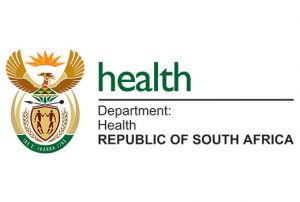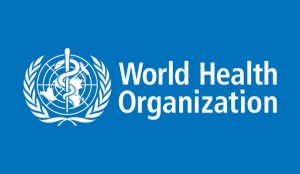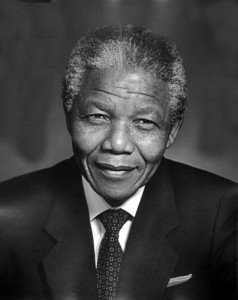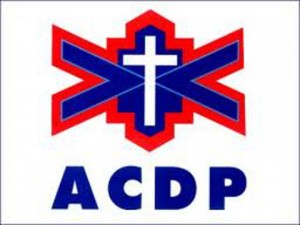It is becoming a habit in South Africa to create a month to focus on a particular event or social issue which we mark in our national calendar. The month of June, which highlights June 16 as Youth Day, has become Youth Month and August 9, which marks Women’s Day, has turned the month of August into Women’s Month. The same goes for Human Rights Month and Heritage Month.
Thankfully we do not yet have Reconciliation Month.
We highlight this because the compartmentalisation of these critical social issues can have the opposite effect to that intended. If we look at these commemorative highlights for a month then we don’t have to pay attention to them for the rest of the year. There is the implicit acknowledgement therein that one does not have to worry about them until the ‘month’ pops up again in the next year. We cannot discredit the value of advocacy that sheds some light on these important issues, but instead we should focus on building these days and their message into our everyday lives.
Important issues like youth upliftment and women’s empowerment are crucial to the well-being of our society. It would be to our advantage to incorporate the importance if these issues into the very fabric of our being as individuals and as a country.
It is for this reason that very soon after the first Mandela Day in 2009 the Nelson Mandela Foundation (NMF) began to call on people to ‘make every day a Mandela Day’. This rationale also linked to Madiba himself cautioning not to turn July 18 into a public holiday, but to ask that it be a day of service instead.
We at the NMF believe that it is not correct at all to spend a set amount of time on Mandela Day and not to aim to incorporate the Mandela Day ethos into our daily lives. To do this would ultimately do a disservice to our founder, Nelson Mandela, who himself made the call that inspired Mandela Day.
On 27 June 2008 on his final trip to the United Kingdom, Madiba stood on a stage in London’s Hyde Park at a concert to mark his then upcoming 90th birthday. Flanked by internationally renowned musicians, he addressed a crowd of 50 000 young people. Always the master of the grand gesture and sensing the historical imperative of passing on the baton, he diverted from his prepared speech and said, “As we celebrate, let us remind ourselves that our work is far from complete. Where there is poverty and sickness, including AIDS, where human beings are being oppressed, there is more work to be done. Our work is for freedom for all. After nearly 90 years of life, it is time for new hands to lift the burdens. It is in your hands now.”
And with that, the idea of Mandela Day was born in the minds of his staff and the first Mandela Day was launched in New York City and across South Africa on Madiba’s 91st birthday, 18 July 2009. We, as the foundation, thought it appropriate to link Madiba’s call for everyone to do what they can to improve the world with a symbol of his service. We chose 67 minutes as symbolic of the fact that Madiba had spent 67 years in service to humanity.
Nelson Mandela International Day
In 1942, 67 years before the first Mandela Day, Nelson Mandela had been living in the heady and politically fraught world of apartheid-era Johannesburg for just under a year. As a young man from the Transkei hoping to become a lawyer he cautiously began attending political meetings. Two years later he joined the African National Congress (ANC) when he co-founded the ANC Youth League.
It is a matter of historical record how Madiba rose through the ranks of the organisation, grew as an attorney and sacrificed his family, his career and his liberty for the struggle against apartheid. He did this to ensure that we can live in and enjoy a free and democratic South Africa. The idea of giving one’s time and energy to those less fortunate quickly caught on and within months the United Nations (UN) declared Nelson Mandela’s birthday as Nelson Mandela International Day.
Since the first Mandela Day we have been moving away from marking just one day and similarly we have moved away from just 67 minutes on that day. The symbolism of 18 July, Madiba’s birthday, is important, but in our vision every one of the 365 days we have in a year is a day to do good.
It was never the intention of the NMF or Mandela himself to commercialise his life’s work and his spirit of service. He and his staff wanted to see the idea of service to humanity sweep the world in such a way that it would result in the creation of a social movement for good.
Madiba followed three rules throughout his life which he did at great personal sacrifice: free yourself; free others and serve every day. If his legacy is to be dynamic and continue to have effect it must be owned by current and future generations. His legacy must be accessible to everyone, and applied in constantly changing contexts of time and place.
We are not there yet, but we are getting there. In our determination not to fall into the many traps including turning Mandela Day into yet another money-making or wasting fest, we continue to encourage people of all walks of life to mark the message of Mandela Day in small ways where they as individuals and communities help to improve the lives of people less fortunate every day. We urge people not to spend money on big Mandela Day events with concerts, events and other activities that take money and efforts away from the essence of the project.
Container libraries project
If money is spent let it be to come up with sustainable projects which will directly and positively impact the lives of those less advantaged. In keeping with Madiba’s passion for education, one example of the many Mandela Day activities supported by the NMF is the Mandela Day Container Libraries project. In May 2014 the Sohlazane Primary School in Tjakastad, an informal settlement in Badplaas, Mpumalanga, became the 44th recipient of a Mandela Day container library.
The library features 15 tablet computers loaded with eBooks, Internet-access and the Via Afrika-registered Curriculum and Assessment Policy Statement curriculum. This digital centre of learning provides Internet-access and interactive curriculum applications to the school’s 619 learners and 19 teaching staff, and to adults in the community who come to the school after hours for Adult Basic Education and Training. The learners are not only able to read content, but encouraged to click on pictures and watch videos to enhance their understanding of how things work. Learners are able to test themselves in various subjects, which is beneficial pre-exam preparation.
In each and every step we take we turn to Madiba’s legacy for our answers. It is from his legacy that we are inspired by the ethos of service. It is what he lived; a leadership of service. This servant leader constantly drove home this point. Another example took place on 11 February 1990, the day Madiba was released after 27 years in prison, when he stood on the balcony of Cape Town’s City Hall and said, “Friends, comrades, and fellow South Africans, I greet you all in the name of peace, democracy and freedom for all. I stand here before you not as a prophet but as a humble servant of you, the people.”
Then again on 2 May 1994 while making the speech on the ANC’s victory in South Africa’s first democratic elections he said, “I am your servant; I don’t come to you as a leader, as one above others.”
Some years after he stepped down as President of South Africa Madiba wrote, “I had always admired men and women who used their talents to serve the community, and who were highly respected and admired for their efforts and sacrifices, even though they held no office whatsoever in government or society.”
So, we at the NMF follow Madiba’s lead in practising and promoting the concept of servant-ship. We have interpreted his 27 June 2008 call as one asking us all to become servants in the mission to improve our world.
It is up to individuals to decide how they wish to make every day a Mandela Day and to whom they wish to give their efforts. For 2014 we have chosen the following pillars, which affirm our people’s dignity, on which to build our activities: food security; education and literacy; and shelter.
Food security
In terms of food security, the foundation aims to secure funding from corporate South Africa and international donors to distribute 670 000 food parcels between 2014 and 2016. Special attention is given to learners who depend on one meal a day which they get at school and who do not enjoy the same benefit during long school holidays. This, of course, includes such initiatives as establishing food gardens which can sustain communities. Through the Mandela Day Libraries Initiative we hope to achieve at least 67 container libraries.
We have partnered with Habitat for Humanity to help build shelters. We work with Trading Lives, a Rhodes University innovation, where people trade their skills, talents, interests or hobbies with other interested parties, to form wide-ranging networks of connections based on community solidarity.
Other initiatives include Trek4MandelaDay – Caring for Girls, the Kaya FM Relay for Mandela Day, the launch of the UN General Assembly Humanitarian Award in honour of Madiba (New York), the Yankees Mandela Day Game, 67 Blankets for Mandela Day Campaign, the Mandela Day Marathon and CycAlive in August 2014.
It is imperative that we do all we can to ensure that Mandela Day does not become part of the mark-a-month syndrome named at the outset. That would allow the campaign to slip into ‘do-gooding’ rather than building cultures of service. Let us rather honour Madiba’s intentions for the campaign by initiating and growing sustainable projects and by Making Every Day a Mandela Day.
By Sello Hatang, CEO Nelson Mandela Centre for Memory










